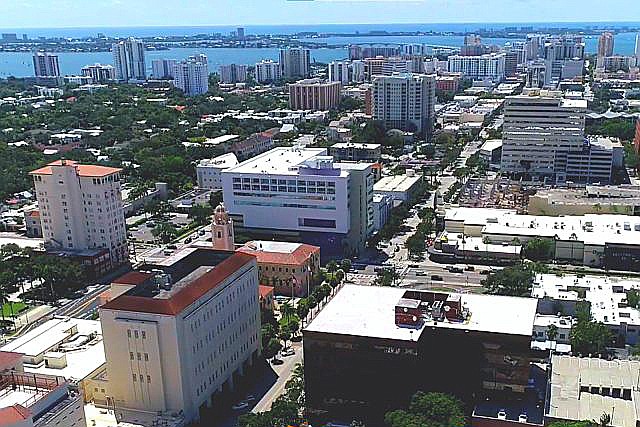- July 26, 2024
-
-
Loading

Loading

With continued rising interest rates and prolonged supply-chain issues, the commercial real estate industry has faced its share of challenges.
When discussing the new year, William Wilson, Tallahassee-based Florida First Capital Finance vice president and business development officer for Southwest Florida, predicts we haven’t seen the last of both factors.
Instead, the newly elected 2023 president of the Commercial Real Estate Alliance of the Realtor Association of Sarasota and Manatee, merely suggests the industry will adapt.
Before the Federal Reserve started raising interest rates, the rates were at levels that Wilson says he has ever seen.
“The interest rates are more normal now," he says.
He predicts there will be one or two more raises before the Fed stops raising rates this summer. Wilson expects the Fed to telegraph rate reductions around the end of the year before actual rate reductions take hold in 2024, baring economic forces.

But that's not the only prediction Wilson has for the industry.
With interest rates back in their usual range, the businesses within the commercial real estate sector will have to adjust.
According to Wilson, that means businesses will need to spend more time making decisions on having a good accountant or bookkeeper . Whereas before, a small business owner could get away with doing the bookkeeping on their own, but now, to manage cash flow and keep their capital needs flexible, they need to have their books ready for when they might need them.
“It’s a lot more stressful today,” Wilson says. “You have to be on top of your game.”
Wilson recalls a client who came in for a loan to buy a building in April without having done their tax returns, as they were on an extension. But today, he says, that probably wouldn’t be acceptable. Making sure tax returns are completed before going in for a loan is more prevalent now.
“We have to project what we think the economy is going to do in the next year or two,” he says. “Financial institutions are more cautious about what is going on.”
Wilson expects financial institutions will start having more demands for what they need from clients asking for loans. It hasn’t been uncommon, he adds, to see financial institutions ask for 24-month plans and executive summaries to fully grasp how the economy is affecting a client.
For now, Wilson says it’s still a seller’s market, with demand for all types of commercial real estate still there whether it’s industrial, office space, retail, medical or agricultural.
So now is still a good time, he says, for businesses in the sector to consider buying properties.
Wilson expects the industry to grow in line with the population growth in 2023. “It’ll come down to available materials and labor,” he says.
With plenty of land available and municipalities in Southwest Florida that are focused on growth for commercial opportunities, his only concern for the industry is a shortage he’s noticed in industrial office flex spaces.
Unfortunately for businesses, Wilson doesn’t see the supply-chain issues and labor shortages going away any time soon.
The increase in demand from people moving here is to blame, he says, adding that the supply-chain and labor issues may be the “new normal.”
With it being such a big state, Wilson says it’s hard to move supplies fast, especially when demand is growing as it is. As a lender, Wilson has begun asking general contractors for the worst case scenario timeline rather than when the project is expected to be completed.
Despite that, he doesn’t expect these issues to deter people from living here.
“People will just deal with it,” he says. That means the industry will need to plan accordingly and be prepared. Before, one backup plan might have been acceptable, Wilson says, while now, you better have six.